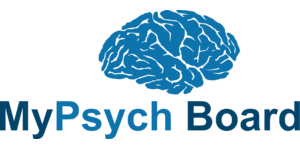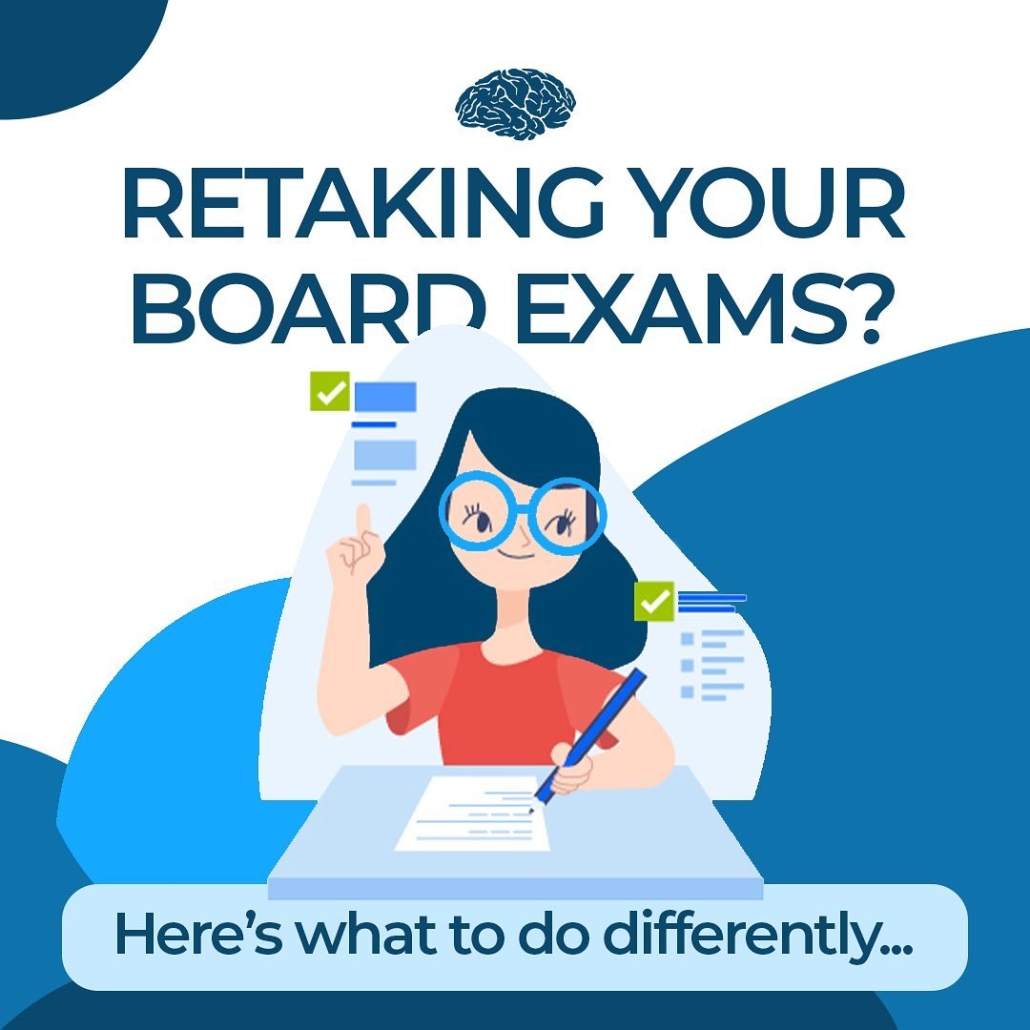The time has finally come… you’re locked in, ready to go, and you’re going to ace your retake exam. Why? Because you’ve followed our TOP 5 tips that ensure your success in passing your Psychiatric Board Exam with ease!
1 – Analyze Your Weak Points
If you know where you struggled with most in the last board exam you can hone in on intaking as much information as you can retain. These don’t need to just be areas you did pool on previously, but could also be ones that could be further reinforced. Try out My Psych Board’s customizable tests that zero in on your most missed questions!
2 – Focus On The NOW
The past is the past, there’s no point in going back! The only way to move in a positive direction is forward. Learn from your mistakes and how you can apply what you’ve learned for better-guaranteed results. If you stay focused on past failure it’s only going to bring negativity and additional stress to your study sessions.
3 – Create A Plan
When studying it’s essential to make the most of your time. Create a plan tailored to your needs. Before you can even begin studying you need to make sure you have all the resources you need. Organize items into folders, check you have all the materials you need, and tidy up your study spot.
4 – Utilize Detailed Questions Banks (like ours here)
With detailed Q-Banks, you’ll get the blueprints, questions, detailed information, vignettes, and more! Within the question breaks, you can get real-time feedback on correct answers, and learn where you’ll need to continue to improve.
BONUS TIP: Did you know we offer FREE Trials of all of our Question Banks? Click here to try today (with no credit card required…)
5 – Take Regular Breaks
As with anything don’t overdo it, You need to ensure you aren’t pushing yourself too far! When you’re studying and preparing for the exam you’re taking a mental health break. This will help break up your studying time, keep you from feeling overwhelmed, and ensure you’re retaining all the information you’re taking in.
Still, feeling uneasy? Contact us and we can help YOU pass your boards with ease!




Controversial opinions: medication vs. talk therapy
/in Board Prep, Health and Wellness, StudyingIn the world of psychiatry, it’s common to come across differing opinions on the best way to manage various disorders. Some clinicians prefer combination therapy, some support pure psychotherapy, while others trial pharmaceuticals prior to engaging in talk therapy. With multiple avenues available, what’s the best approach?
We took a look at a review of 102 meta-analyses of how professionals across the country handle different categories of disorders and their resulting efficacy. And guess what?
There’s no one size fits all! That’s right. This review that looked through 3,782 RCTs and 650,514 patients (all adult) found small benefits for both pharamcotherapies and psychotherapies (SMD=0.35). In their break down, the authors show that clinicians across the field generally favor a combination of both interventions to address conditions such as depression, social anxiety, OCD, and PTSD when compared to monotherapy. However, there are still notable benefits for each condition when using monotherapy! So…what’s the take away?
When considering treatment options for your patient, you need to consider their individual case. Some patients are fine with monotherapy, whether that is psycho or pharma, and some require a little of both. It’s your job as the professional in the field to assess which way is best for them. And so long as you do your due diligence, the data suggests one way over the other isn’t necessarily “better” (so, so there therapeutic purists!)
Making judgement calls can be tricky. A great way to get more comfortable is to practice! Learn more about treatment options and give your assessment skills a work out by going through our Diagnostic Procedures and Psychopharmacology topics. Give our question banks a try- FREE- using our Free Trial! Or if you’re ready to take the plunge, check out our Question Banks and find the perfect fit for you! Or, contact us with any questions you have so we can help you prep in the best way for you
REFERENCE:
Leichsenring, F., Steinert, C., Rabung, S., & Ioannidis, J. P. (2022). The efficacy of psychotherapies and pharmacotherapies for mental disorders in adults: an umbrella review and meta‐analytic evaluation of recent meta‐analyses. World Psychiatry, 21(1), 133-145.
What’s the Tea on the USMLE?
/in Board Prep, StudyingThe United States Medical Licensing Exam is a year-round board examination for anyone wanting to practice medicine in the U.S. This includes psychiatrists and psychiatric candidates who can sit for the USMLE Step 2, Clinical Knowledge. So what do you need to know about it?
Registration Timeframe
The USMLE can be taken at (almost) any time throughout the year. The candidate submits a 3 month period in which they can be available to sit for the exam, excluding the first week of January or specific major holidays. After the examination is complete, results can be expected anywhere from 2 to 4 weeks later.
Cost
Step 2, CK now costs $1,000 to register and take the exam. This price increased from $965 as of January 2023. Step 1 and Step 2 are both this cost.
Exam Breakdown
The USMLE Step 2 consists of about 318 multiple choice questions administered over eight 60 minute blocks. This means you have about 90 seconds per question. You also get 45 minutes total of break time. If you finish a block early, the remaining time is added to your break time.
Exam Material
Exams for Step 2 include System Specifications, Physician Competencies, and Discipline Competency. Breakdowns for each of these are found below (these can also be found at the USMLE website here)
2023 Information Bulletin
The full scope of information for the USMLE 2023 can be found in this bulletin taken directly from the USMLE website.
Getting ready to take the USMLE, or just starting to plan it out? We can help you! Check out our USMLE Question Bank tailored specifically toward getting you ready for the Step 2, CK Psychiatry and Neurology sections!
How Many Ways Are There to Prep for Tests?
/in Board Prep, StudyingEveryone has their own unique style when it comes to getting information into their noggin’. Test prep can take many shapes and forms, and what works for one person might not work for another.
Prepping for a board exam can be incredibly stressful. The weight of your career decisions rests on the outcome! (No pressure, right?) To cope with this stress, test prepping can manifest as several different approaches: the WINGER, the PROCRASTINATOR (aka, CRAMMER), and the TORTOISE.
The Winger
The Winger is the person that lets go of the immediate stress the exam is putting on them, and puts it out of their mind. They know it’s coming up, but they have confidence in the amount of information they have stored in their brains. The have an uncanny ability to refresh the knowledge and consolidate retrieval just by existing….or so they think. These test takers waltz into their exams and take a gamble that they will have all the answers (or at least enough to pass!). Depending on the type of test you’re going to take, being a Winger can work OK. Think 100 level undergrad classes. ABPN, PRITE, NP, or USMLE? This might not be the best approach.
The Procrastinator
The Procrastinator (aka, Crammer) is similar to the Winger. They also put off prepping for as long as possible. But while the Winger tends to follow through on their approach, the Procrastinator usually gets MORE stressed by avoiding it, and ends up cramming as much studying in as possible in the last day or so leading up to the exam. Cramming can be beneficial when compared to not prepping at all, and for some individuals, cramming is their sole means of test prep. Can it work? Probably. Is it great for your mental health? Not really.
The Tortoise
Lastly, we have the Tortoise. This name harkens back to Aesop’s Fables, as it should, because this test prepper takes the slow and steady approach. Plunking along, little by little every day, this prepper integrates new bits of information into their mental arsenal. They challenge the knowledge they already have to increase retrieval. The process starts closer to a few months ahead of time, as opposed to overwhelming themselves with whole textbooks 48 hours before their next exam. Instead, they have time to relax and take in some self-care in the days leading up to the exam so that they are refreshed and ready to go.
Is any one of these approaches superior? Research would suggest there is favorable option- we’ll let you decide which one you think it is 😉 In the meantime, if you’ve been relying on being a Winger or a Crammer up to this point, let this blog be your sign to give the Turtle Club (yes, that’s an early 2000’s movie reference) a chance. Give our question banks a try- FREE- using our Free Trial! Or if you’re ready to take the plunge, check out our Question Banks and find the perfect fit for you! Or, contact us with any questions you have so we can help you prep in the best way for you.